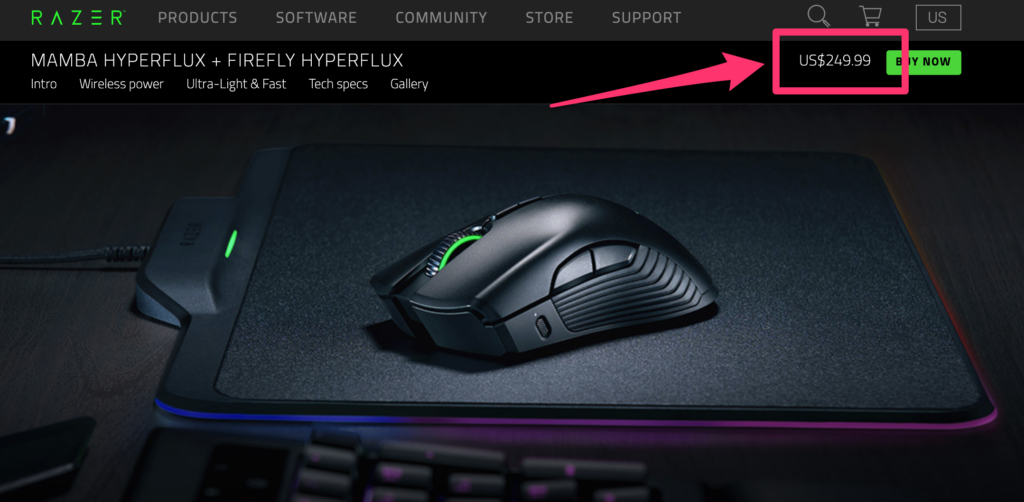As an SEO Consultant, one of the questions I hear a lot is “Do you mainly do SEO for B2B companies, or are you more of a B2C consultant?”
A person asking that question is usually just trying to understand my range. They want to make sure I’m the right guy for the job. That my strengths and experience are aligned with their needs and I’m not going to need any hand-holding.
But if you’ve ever asked some form of that question, I want to challenge you that you might have an incomplete understanding of B2B and B2C SEO.
In this post, you’ll learn:
- Why thinking about B2B and B2C SEO as fundamentally different is a mistake
- The real factor you need to consider when hiring an SEO consultant (hint: it’s not just B2B vs. B2C)
- A better way to ask the question that really matters
You’ll miss a big piece of the picture if you think of B2B and B2C SEO as totally distinct. So read on, and we’ll get to the bottom of it together!
Why it’s a mistake to think about B2B and B2C SEO as different
In most people’s minds, the main difference between B2B vs. B2C SEO is that business transactions are more complicated than consumer transactions. Business customers do more research. They make longer, more considered decisions. They need to get buy in from internal stakeholders and they are typically risk-averse.
Compare that with consumers, who we often think of as finding and purchasing products relatively quickly. Consumers might do a quick price comparison, or browse through some product categories, but it won’t be long before they click the Buy Now button. It’s mostly e-commerce, right?
The shorthand version of this is that B2B customers have a long buying cycle and B2C customers buy quickly. But here’s the thing: that’s not always true.
Businesses can buy like consumers and consumers can buy like businesses
Slack, Gsuite, and QuickBooks are all B2B products. So are office supplies or food delivery for lunch. But these products often have a very short buying cycle.
If the founding team needs a chat solution, they’ll probably just go get Slack. Boom, now they’re a Slack shop.
If the new hire needs a new mouse, the Board of Directors doesn’t need to get involved. The Office Manager just picks one with good reviews from Amazon and pays for it out of their budget. After all, they’re not using it themselves and a mouse is a mouse, right?
But there are some people who take their mice seriously. Very seriously indeed.

Gamers live and die by their mouse. Their scores (and reputations) depend on their hardware’s accuracy and speed. They’re not going to buy just any old mouse.

To complicate things further, there are over 50,000 results for “gaming mouse” on Amazon. And some gaming mice (like the Razer Mamba Hyperflux) can cost hundreds of dollars.

Gamers might spend hours reading articles about gaming mice. They might talk to peers or read through dozens of reviews. They might even need to make a pitch to an internal stakeholder (Mom or Dad) to justify their purchase. Because of all that, there’s risk involved. If they make the wrong choice, they’ll have wasted all that time and could end up with something that hurts their performance.
So for a gamer, doesn’t buying a mouse seem an awful lot like a business transaction?
Want more examples of consumers buying like businesses? Let’s take tropical vacations. I’d bet you a free SEO consultation there are lot of people who spent more time planning their last family trip to Cancun than they did vetting a new vendor at work. In fact, I’ve personally sold 6-figure SEO packages that took less time and effort for my client to approve than I put in researching the engagement ring I bought this year.
How about weddings? Or cars, car seats, college educations, and divorce attorneys? All examples of B2C products that can have very complex buying cycles. Not to mention the people who spend days or weeks shopping for just the right power tool, home appliance, or handbag.
All of a sudden, the distinction between B2B and B2C SEO doesn’t look so clear.
Transaction Complexity is the Key
By now you should have a good sense of what I mean when I say businesses sometimes buy like consumers, and consumers sometimes buy like businesses.
So when you’re choosing an SEO consultant or agency, you should be looking deeper than whether they have B2B or B2C experience. What really matters is whether they can understand the complexity of your buyer’s journey.
Low Complexity

Does your customer tend to search for a specific product or service and then sift quickly through the first few Google results before making a decision? If that’s the case, you’ll first want to focus on making sure your core product or service pages are ranking high on the results page for your main product/service terms.
Examples of products with low complexity buyer journeys:
- B2B: Office supplies
- B2C: Socks
Here, we’d typically focus most of our SEO resources on optimizing your home page, or product/product category pages.
Buyers know exactly what they want, so we want those pages to appear high in search results where they have a high likelihood of being clicked. The goal here is a quick conversion to a sale.
Medium Complexity
For medium complexity buyer journeys, the customer typically knows what they’re looking for, but they need to do some level of research before they can settle on a decision.
They’ll probably invest time in comparing several products, and may want to have a conversation with a salesperson to understand their options.
Examples of products with medium complexity buyer journeys:
- B2B: Project management software
- B2C: High-end hiking boots

For these products and services, we’d want to focus on optimizing our core business pages (just like low complexity businesses) but we’d also ensure we’re developing more informational content too.
We might develop a campaign of blog posts targeted to buyers who are comparing different options. Or a handful of longer-form guides that helps our target market with a problem directly related to our product or service. Goals here are usually to drive leads.
High Complexity
For high complexity buyer journeys, the customer typically spends a lot of time educating themselves before making a decision.
They may not even know what to Google when they start out, and will spend time searching for solutions to their problem instead of specific products or services.
Examples of products with high complexity buyer journeys:
- B2B: New app virtualization platform
- B2C: Extended trip to Europe

Image by Tim Trad (via Unsplash)
These customers often need lots of supporting data to share with others before they can make a decision. In this case, you’ll want to consider a broader approach where you invest in content that appeals to them at many different stages of their buying journey.
That will likely include even more blog-style content or long-form assets like guides, but can also whitepapers or industry studies. Goals are typically more top-of-funnel, and focused on brand awareness and lead generation.
How to Pick a B2B vs B2C SEO Consultant or Agency
A good SEO consultant won’t just pull out a playbook based on whether you sell to businesses or consumers. They’ll help you develop a package of technical SEO, content, and link building that will help you touch the customer at every stage of the appropriate buying cycle.
Typically, more complex buyer journeys require more types of content. You have to do a lot more research up front to understand how your audience searches and buys and then work on developing a strategy that will produce content that appeals to them.
Once that strategy is defined, it’s a question of executing on the SEO fundamentals:
- Technical SEO
- Content
- Links
Why? No matter what you’re selling, Google is going to want to see that your site provides a good user experience. You’re going to need to have some content that Google can match up to search queries. And you need some form of external validation for Google to see your site as trustworthy.
How to ask if an SEO consultant or agency is right for you
Instead of asking whether the consultant or agency has B2B or B2C experience, ask them what they would do differently for your particular customer.
Before answering, a good SEO consultant or agency will ask some follow-up questions in response to try and make sure they understand your customer before recommending a particular solution. And, they’ll be able to tell you why the challenges you face with SEO are different from other businesses or industries.
If you’d like more information about SEO for your B2B or B2C company, feel free to send me a message on LinkedIn!

I run a small SEO consulting business in San Francisco, CA. I like to write a little bit and get in arguments with my friends. It’s the only way I can make sense of the world.
